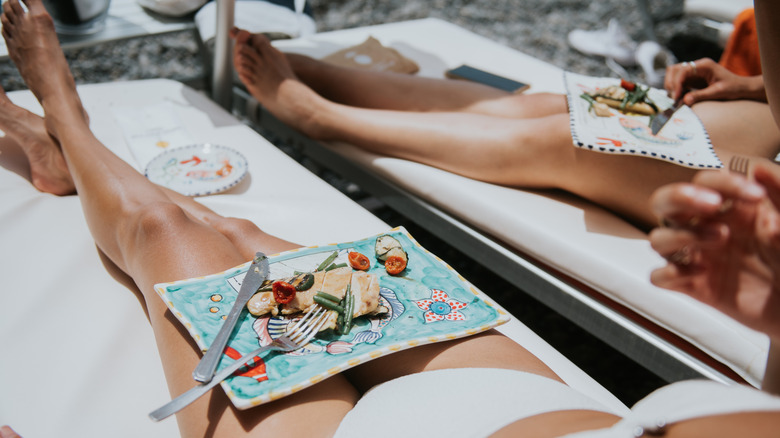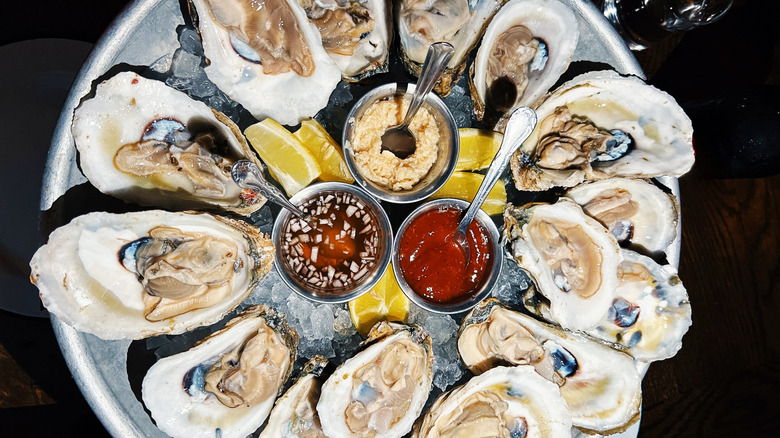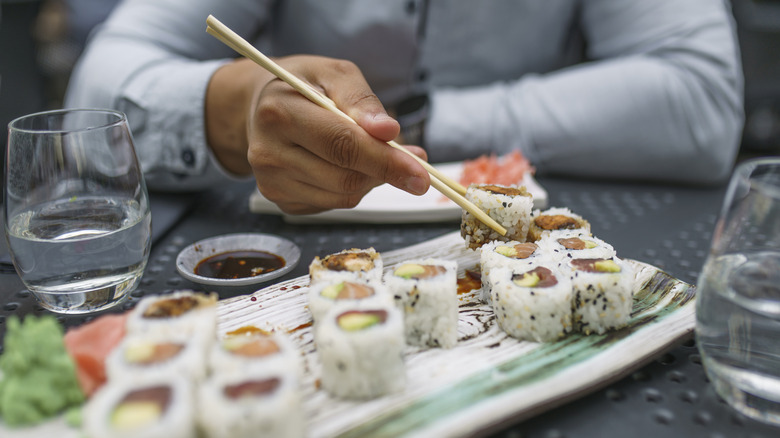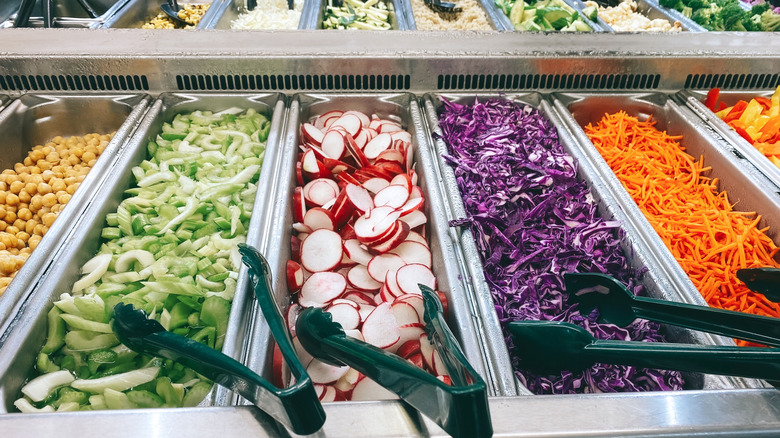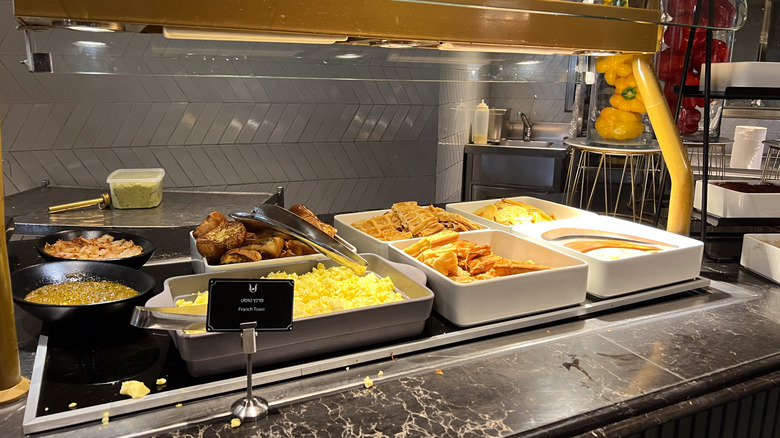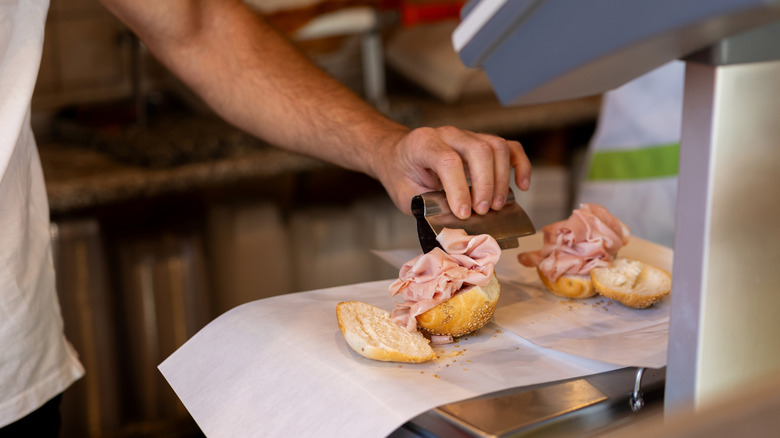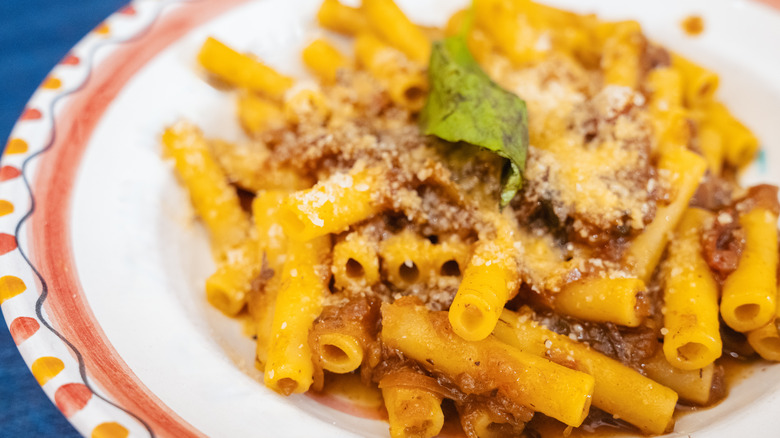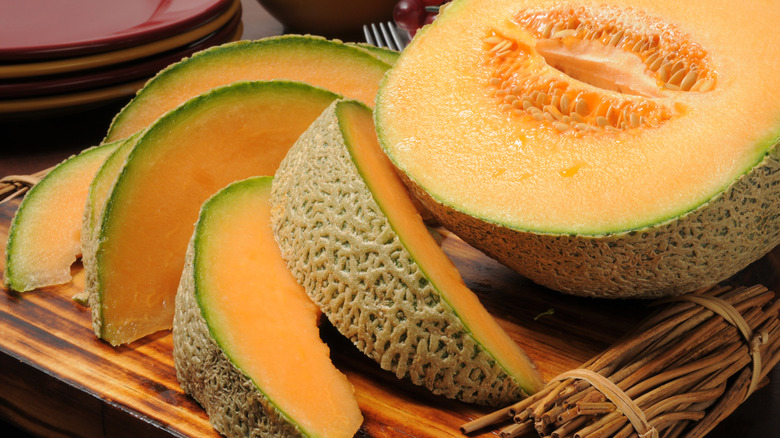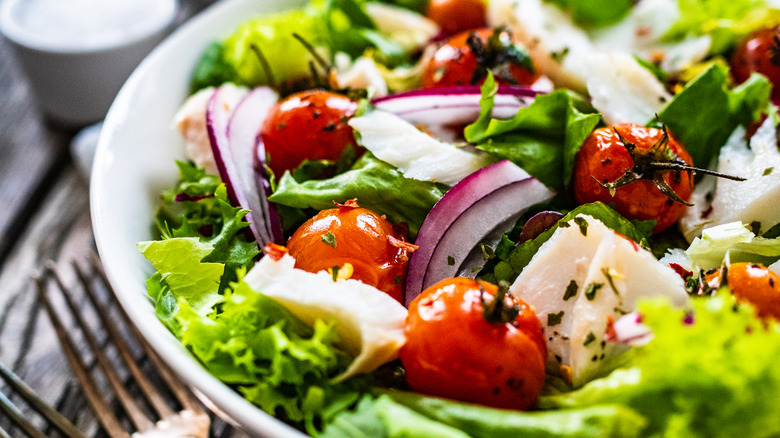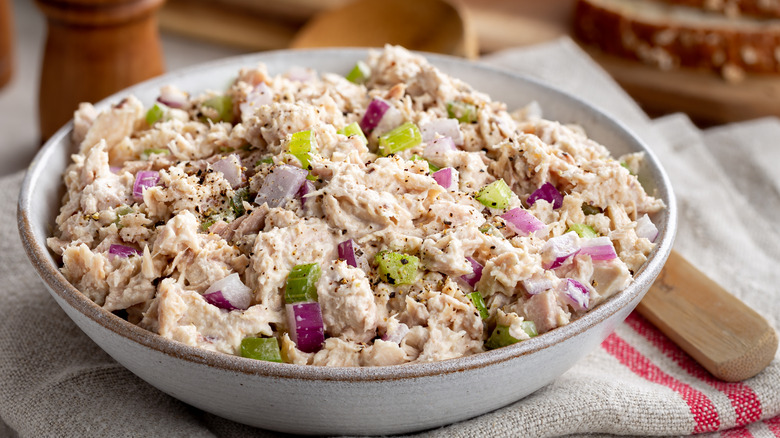10 Foods You Should Think Twice About Eating On A Cruise, According To An Expert
With summertime in full swing, thousands of eager travelers will be packing their bags and setting sail on cruise ship vacations. While being on vacation may tempt you to indulge freely on the all-you-can-eat buffet or other delicious cruise cuisine, you may want to think twice before eating whatever catches your eye. After all, on a good vacation, you should be bringing home memories, not unwanted illnesses.
To learn what kinds of foods you may want to avoid on your next cruise ship vacation, we interviewed Jason R. Margulies, a Board Certified Admiralty & Maritime Lawyer and Co-Managing Partner at Lipcon, Margulies & Winkleman. His expertise provided valuable insight on the factors that could make certain foods dangerous to eat while on a ship. He explains, "With prime cruising season ahead, Google searches are reflecting the trend of concern among travelers with 'cruise ship safety statistics' jumping up over 160%," adding that, "One of the biggest safety concerns cruise goers should be on high alert for are dangers involved with eating certain foods." With his guidance, we compiled this list of 10 foods you should probably think twice before putting on your plate the next time you're on a cruise ship vacation.
1. Raw or undercooked shellfish
Eating raw or undercooked seafood can be especially tempting when you are on a nautical vacation. While they may be delicious, there are several serious risks that come with consuming these kinds of foods, and it's important to look out for any red flags at a cruise ship buffet serving seafood. According to Jason Margulies, the uncooked seafood that poses the biggest risk is raw oysters, but clams can be potentially dangerous as well.
Even on dry land, oysters can be dangerous because they're a common source of norovirus, a contagious virus that can contaminate seafood through human sewage systems. Once someone's infected with norovirus, they can experience symptoms including stomach pains, vomiting, fever, body aches, and diarrhea. As Margulies explains, "On cruises, passengers have the biggest risk for contracting norovirus as the close quarters make it easier to transmit. Food that is contaminated through improper serving or storage can also serve as the catalyst, particularly any raw seafood items." If you still want to have an oyster on your cruise ship vacation, there is another way. Margulies advises enjoying oysters steamed or served hot, to avoid any major risks of sickness.
2. Sushi and sashimi
Similar to raw shellfish, raw fish also poses a risk for cruise ship guests. While cruise ship employees are trained to follow strict food safety measures when storing and serving raw fish, there's still a larger risk of norovirus, as well as parasites. "With raw foods, they must be prepared using flash-freezing to kill off parasites," explains Jason Margulies. "Still there is always a risk, particularly if these items sit out at buffets and aren't kept properly chilled."
Sushi is delicious, but for these reasons, it's wise to avoid eating raw seafood on your next cruise ship vacation. However, if sushi is something you can't pass up, try ordering a cooked roll like a New York Sushi Roll instead of something with raw seafood. That way, you can enjoy a stress-free vacation without worrying you are bringing home any unwanted parasites in your fish.
3. Buffet food
When you think of dining on a cruise ship, it is very possible you may be envisioning filling up on a buffet meal. While the promise of unlimited food may seem appetizing, cruise buffets can be potentially dangerous for a variety of reasons. One major problem that cruise buffets pose is that the food served can stay out for extended periods. As Jason Margulies succinctly explains, "They will hardly be worth the upset stomach if they weren't kept at proper temperatures, making you sick."
Another potential risk of buffets is the potential for cross-contamination. "Many travelers pick up tongs and stick them back in the wrong dish, and even more of them fail to wash their hands first, which is why staff frequently swap out utensils," Margulies says. Cruise employees undergo strict training to ensure that these risks are mitigated, but the risks for cross-contamination and norovirus exposure still exist, which is why we recommend you skip the buffet.
4. Eggs
For many people, eggs are the perfect breakfast item. They provide protein as well as nutrients like vitamin D, iodine, vitamin B, choline, and folate, making them a smart choice for those looking to start their day on a healthy note. However, eggs can pose potential risks when eaten on a cruise ship. "Steer clear of egg dishes from the buffet that may have sat too long or been handled by too many other passengers," advises Jason Margulies.
Eggs on cruise ships are often cooked in bulk and left to sit out for an extended period of time. Not only does this make them less tasty, but it can also allow the food to potentially become contaminated or exposed to bacteria. This would be an item we would recommend avoiding on your next cruise ship vacation, unless the eggs are made specially for you. As Margulies says, "If your eggs are cooked to order, then they should be safe."
5. Prepared deli sandwiches
Grabbing a quick pre-made sandwich may seem like a convenient lunch option aboard a cruise ship, but it may not be your smartest choice. With thousands of guests on board a cruise ship, prepared deli sandwiches are made in large batches to accommodate everyone. While they may be delicious, we advise against eating these due to the potential risk they could cause. Jason Margulies advises, "Be cautious with these types of things because the meats may not have been refrigerated properly, which can result in illness."
Cruise kitchens follow strict protocols to keep meats at the proper temperatures while inside the kitchens. However, pre-made sandwiches can sit out for a while, making them susceptible to bacteria, especially in warm climates. "Even during regular meal times, you may want to skip anything that has been left uncovered or looks a bit dubious," recommends Margulies.
6. Soft cheese
A cheese platter is always a delicious accent for any meal, but a cruise ship may not be the best venue to enjoy one. Soft cheese can spoil when left out in the heat, and the tropical climate of a cruise ship is no exception. "Any food can suffer a shorter shelf life when it's not kept refrigerated to proper temperatures or when food services staff mishandles it," explains Jason Margulies. "The kitchen crew needs to monitor everything for freshness, and while many take these duties seriously, there is always room for human error."
Soft cheeses are especially susceptible to Listeria bacteria, because they're high in moisture and do not go through the same aging process that hard cheeses do. Listeria can cause symptoms including a fever, chills, muscle aches, headaches, and confusion. Serious cases can be especially dangerous and even become fatal during pregnancy, or for children and elderly people. To avoid any risks of exposure, it's best to skip eating soft cheese on a cruise ship.
7. Saucy dishes
Saucy dishes are something you'd be well advised to avoid eating while on a cruise ship. While they may be delicious, these menu items can quickly turn an enjoyable vacation into a sick one. This can apply to a variety of saucy dishes, including pasta sauces, soups, and meat entrées that incorporate dairy. "Anything creamy or saucy is another hot spot for spoilage," explains Jason Margulies. "Unless it's been freshly prepared just for you, skip it."
Dairy is always prone to spoiling, and a cruise ship is no exception. Things can get especially bad when it comes to sauces left out at a buffet. Any sauce with a cream base is susceptible and should be avoided in a cruise ship setting. Unless your cruise ship is offering a delicious vegan sauce alternative, this is another menu item you should avoid eating on a cruise.
8. Cut fruits
Sliced fruits are delicious, healthy, and refreshing, especially on a tropical vacation. However, the potential dangers of this item make it one we would recommend avoiding on your next ship vacation. This is because of the bacteria that can potentially be found on the rind of fruits like cantaloupe and melon. "If the prep team didn't thoroughly clean the exterior first, this bacteria will be all over fresh cut melons," says Jason Margulies.
There are plenty of other non-cut fruits like bananas, blueberries, strawberries, and apples that are going to be safer for you to eat while on your vacation. The last thing any guests would want is to be sick on vacation with a virus like Listeria and Salmonella. While fruits are a staple of an everyday diet, we recommend avoiding cut fruits like cantaloupe and melon served at your cruise breakfast or buffet.
9. Leafy greens
Leafy greens are an essential part of any healthy diet, but a cruise ship may not be the best venue to eat them. Cut leafy greens can be a haven for bacteria if they are left in warm temperatures for too long, so pre-made salads can be potentially dangerous to consume. According to Jason Margulies, "Chefs and food handlers are trained to keep cold foods below 40°F and heated foods above 140°F to prevent bacterial growth." Still, salads left to sit out, especially in a buffet-style setting, can become potentially dangerous.
Cut leafy greens can be susceptible to pathogens like E. coli, Salmonella, and Listeria if kept in temperatures above 41°F. E. coli, in particular, can cause severe stomach pains, vomiting, stomach upset, fever, dehydration, and can be potentially fatal for vulnerable groups such as children, the elderly, or those with medical conditions. That's the last thing you'd want on a vacation, making leafy greens something that you should avoid during your next trip on the seas.
10. Cold foods not kept cold
In line with many of the other suggestions on this list, Jason Margulies recommends cruise guests stay away from cold foods that are not kept cool enough. "Tuna salad, egg salad, and all those mayo-based items that need to be kept properly chilled," he says. These kinds of foods can be found at buffets or select dining locations, and they can be potential hosts for harmful bacteria.
Instead, Margulies recommends cruise guests eat "hot, freshly prepared-for-you meals, which will reduce your risk of suffering a foodborne illness." In addition, guests can protect themselves by washing their hands thoroughly throughout the day, especially before eating.
As an additional reminder, Margulies mentions, "In the event that you do suffer from vomiting, diarrhea, and other symptoms of foodborne illness, it is imperative that you report it to the medical staff on board immediately to get the treatment you need." With these helpful tips, you can focus on enjoying dining on your next cruise, and do the most you can to avoid getting ill.
